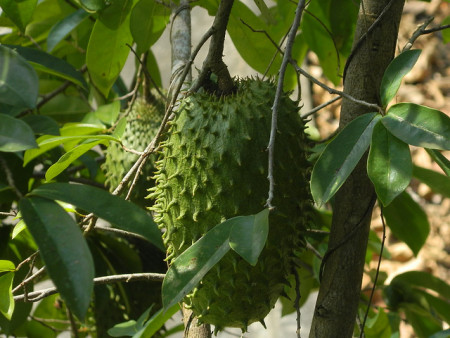by Rishitha Shetty
There was something to holding the areca nuts in the folds of her palm, her nails leaving moon shaped indents on their skin. It was their scent, mixed with sweat, that got to her. She opened up her palm and watched them change to a dull pink, the brownness adamantly clinging to their shrivelled sides. She counted them with her fingertips, pushing them across her palm lines like rosary beads, all the while watching the girl pump water from the public pump. She mirrored the girl’s movement with her wrist – up, down, up down – as the nuts slipped, one by one, out of her hand. The action reminded her of the previous night – of hips pounding into her as she watched from below; a tongue touching the corner of her eye, leaving a trail of dribble along her nose. She remembered not shying away from the stink of stale food on his breath, but instead, picking out the faint scent of areca nut, her nose following its path. That was all she remembered from the night; his name and face, she had peeled out, just as he had peeled her out of her sweat-soaked sari. As she let the last nut drop to the ground, the girl stopped pumping; the fluorescent green pot now filled to the brim, she squatted to wrap her arms around it. The girl had been the result of another of her nightly trysts twelve years back. She could scarcely draw him in her head now, his features just as insignificant as the girl’s, his arched eyebrows sketched haphazardly across his daughter’s forehead.
As she watched the girl carry the pot up the stony hill, she got up to follow, only to bump into a lady from the village, who quickly averted her eyes from the pair. An involuntary smile lifted the corners of her mouth at this. She was used to this treatment from the village ladies, who acknowledged her presence only when they were in groups, and even then, had their smiles wrapped protectively around a joke. She was even aware of the names they had given her, all sirens from long-forgotten southern movies. Her real name had long since hidden itself between the pleats of her sari, only occasionally peeking out at her when she draped it back after the night. Her appearance did not mirror her namesakes by any means. The face that stared back at her from the termite infested mirror everyday was almost grotesque. She had begun to use scissors to trim her facial hair some years ago, giving her cheeks and chin a greyish hue. Her face had sharp masculine lines, her beady eyes were lined with excessive kohl and thin lips painted red. A small black spot stood off to the side of her upper lip, just shy of touching it.
Yet, there hadn’t been lonely nights in years. Her trick was to sit cross-legged in the riverside shack, bent over her glass of toddy, her eyes occasionally skimming over the drunken crowd of men. She knew that her appeal was in the jasmine grazing her earlobes and the manly drawl of her voice as she ordered her drink. Some nights ended with a few hundred rupee notes tucked into her blouse while others ended with her running after the men, the morning after, with a heated skillet. She hadn’t let the men near the girl yet, but the thought had occurred to her with the occasional grey strands she plucked out of her head.
As she followed her daughter back to the house, her eyes fell on the strange new plant that grew by her chilies. She had first noticed it a few days ago when the fruit, looking like it was a few breaths short of growing into a jackfruit, fell to the ground. She had plucked one and angled it towards the sun, examining each side as it raked her palm. Its surface wasn’t smooth like the areca nut fruit, nor was its smell reassuring. The bumps and crests on the skin reminded her of the tendons she had traced with her tongue over the years. She had rubbed it along the curve of her elbow to see if it would feel better than whiskers that had whispered to the bulge of her waist.
The pock-marked tea stall owner had warned her that it was a cursed plant, its fruits coughed out in anger by the gods. “Unstoppable coughing, see. That’s why it’s so thorny,” he had said. His words seemed reasonable enough; the wretched thing looked like it had borne the brunt of the gods, its skin just as jagged as hers.
Over the weeks, she developed a revulsion to it. In her dreams, she saw her own arms grow out like branches, wrapping around the girl’s stretched neck; her toe-nails grew deeper and deeper into the ground, to hold her house within. There were also times when those hands reached for her own thighs, to leave knife-cuts across them.
She would ask the tea stall owner to uproot it later that night, she thought. He had promised her that he would bring fried sardines and cashew apple ale. She locked the girl in the kitchen and then ran a dishrag under her armpits and dusted talcum powder around her lips. Her jasmine flowers were slightly shrivelled; she sprinkled water over them and pinned them to her hair. Just as she dusted wood shavings off the sheets of her bed, he entered, his eyes repeatedly washing over the garden behind him. In his hands, he didn’t have cashew apple ale or sardines, but the cursed fruit.
“You’re growing gold in your yard, darling. Soursop, they call it in the city,” he said, his fingers running down her arms. “Just you wait till I get the barrel tomorrow. Three thousand for one, we can sell them all. It can bring back people from death’s door, this. We’ll sell it and go to the city. You’ll come with me, of course.” As each tendril of her hair came out of the braid, she watched the fruit break open, its beady eyes looking back at her own. Its branches grew out, unlatching the kitchen door, hissing as it raised its hood over the girl. She closed her eyes and sniffed at his neck for a hint of the familiar. The wrinkles of her mouth searched for the areca nut’s smoothness on his lips. Instead, they were like the rough patch of the cursed fruit, now making their way down her elbow. The night was painted in green after that, as she hovered between sight, touch, dreams and wakefulness.
“It can cure any disease, see, this soursop. They even call it the fruit of Lord Rama. And to think it was cursed! I’ll just pick up my sickle and barrel.” She wanted to go with him to the river. She imagined the water washing away the grime in her toenails. She would let the water touch her hips, she thought, the stretched silvery skin soothed by salt. They could make love behind the boulders, even. The curse of the fruit would seep into its retreating waves.
He had already reached the bottom of the hill, but she could catch up with him if she hurried. She moved to follow him, but made her way back to the plant instead. She emptied a bottle of alcohol on it and lit a match. Its flames, amber like a ripe areca nut fruit, ate at the last leaf of the plant. Her mouth widened in laughter as she made for a mad dash down the hill.







[…] https://sparkthemagazine.com/soursop/ […]